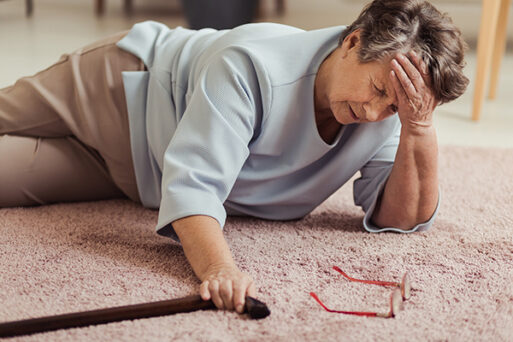
Some believe that clumisness, falls and other accidents may be an effect of grief, although scientific evidence supporting this belief is scarce.
Everyone knows that grief can be disabling – but heightened clumsiness could make that statement even more literal.
In 2022, actress Ashley Judd suggested that grief had contributed to her fracturing her leg just months after her mother’s suicide. “Clumsiness is associated with grief, and there were other people in our family, after mom died, who fell down stairs and had accidents, and that’s just what mine happened to look like,” Judd said, according to Fox News.
Writing for NPR, journalist Lauren DePino described falling down her patio stairs on the anniversary of her beloved aunt’s death, only to discover that her mother and sisters had suffered similar falls. DePino then spoke with grief expert Meghan Riordan Jarvis, who confirmed grief’s ability to impair people’s balance and make them clumsy.

Research into Clumsiness and Grief is Limited
Mary-Frances O’Conner — a neuroscientist, psychologist, and author of “The Grieving Brain” – told DePino that “”Our capacity for balance is a necessary component of moving safely through the world. And it is reduced in many bereaved, as so much of the world has shifted from the normal granite that has always worked for them.”
Many people are familiar with broken heart syndrome, in which stressful events such as the loss of a loved one can cause weakness in the heart muscle — even resulting in death. Yet the potential for grieving individuals to face a heightened risk of accidents is something that researchers have only just begun to explore. O’Conner noted one study that found widows are more likely to die in the years following their spouse’s death than those who remained married.
Still, Judd acknowledged that the additional challenges posed by being clumsy came with a side benefit: The accident forced her to slow down. “It really allowed me to stop what I was working on at that moment and to grieve,” she said.

 Does Grief Heighten Clumsiness?
Does Grief Heighten Clumsiness?


 How Dare You Die Now!
How Dare You Die Now!

 “Help Me, Helen”
“Help Me, Helen”














